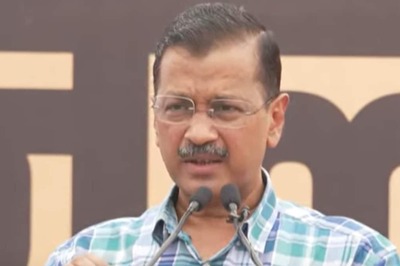
views
New Delhi: A junior minister and the Rajya Sabha secretariat are at variance on the status of an amendment to a bill to protect whistle blowers, a measure that many say dilutes the law and should thus be referred to a select committee of the Rajya Sabha.
In reply to a question in Parliament on April 28, 2016, Minister of State (Independent Charge) in the PMO, Jitendra Singh, stated that the Whistle Blowers Protection (Amendment) Bill had been sent to a select committee.
However, in response to an RTI application filed by social activist Anjali Bhardwaj, the Rajya Sabha Secretariat stated that the bill is not pending with any parliamentary committee.
"The Whistle Blowers Protection (Amendment) Bill, 2015, as passed by Lok Sabha, is pending in the Rajya Sabha. This bill is not pending with any parliamentary committee at present," the reply said.
RTI activists have renewed calls for a strong law to protect whistle blowers after rights campaigner Bhupendra Vira was shot dead in Mumbai last month.
The Whistle Blowers Protection Act, which was passed by Parliament, received presidential assent on May 9, 2014, but has not been operationalised till date.
The Act provides a mechanism to investigate alleged corruption and misuse of power by public servants and also protect anyone who exposes alleged wrongdoing in government bodies, projects and offices.
"Instead of promulgating rules to operationalise the law, the government has moved an amendment bill in Parliament which seeks to severely dilute the Act," said Bhardwaj, who is part of the National Campaign for People's Right to Information (NCPRI).
"The amendment was brought to the Lok Sabha without any public debate on its contents. RTI requests seeking information on the nature of amendments were denied to citizens. The text of the amendment was only made public on May 11, 2015, once it was introduced in the Lok Sabha," she pointed out.
Despite demands from parliamentarians to refer the amendment bill to a standing committee, the Lok Sabha passed it on May 13, 2015.
"They are not only diluting but also dilly-dallying with the legislation, which is supposed to bring transparency in our system. We argued for more stringent measures. During the UPA (United Progressive Alliance) regime, more stringent measures were inserted.
"When the bill was re-introduced, we found out that many of those measures that were proposed during the UPA regime were absent from the present bill. That is why we proposed that it should be sent to a standing committee for scrutiny and discussion," said Adhir Ranjan Chowdhury, a Congress MP from West Bengal.
The bill was taken up for discussion in the Rajya Sabha on December 7, 2015. Several MPs moved amendments and demanded that the bill be referred to a select committee. The discussion could not be concluded due to paucity of time.
"The Whistle Blowers Protection (Amendment) Bill was not referred to a select committee. In fact, we had suggested that it should be referred to the select committee. As of now it has not been sent," said Rajya Sabha member D. Raja of the Communist Party of India.
According to RTI activists, Whistle Blowers Protection (Amendment) Bill, 2015, dilutes the original Act by removing safeguards available to whistle blowers from prosecution under the Official Secrets Act and also by introducing wide-ranging exemptions.
"The amendment bill states that no disclosures should contain information which would prejudicially affect the sovereignty, integrity, security, strategic, scientific or economic interests of the state," said Bhardwaj.
Commonwealth Human Rights Initiative (CHRI) findings show that since the RTI Act came into being, at least 56 individuals have paid the price with their lives for demanding transparency and accountability in the government.
Maharashtra tops the list with 10 alleged murders and at least two suicides (12 deaths) followed by Gujarat with eight alleged murders and one suicide (nine deaths), Uttar Pradesh with six alleged murders and one suicide (seven deaths).




















Comments
0 comment